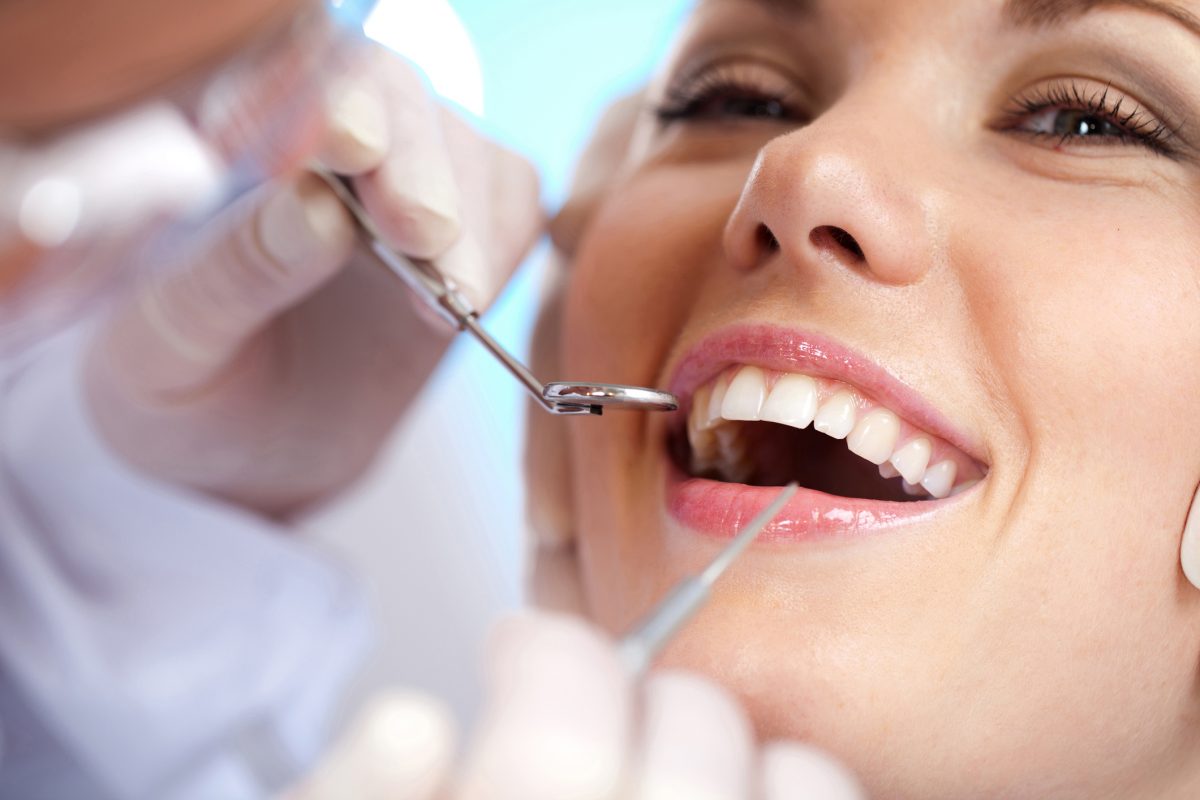Tag: dental crowns dentist litchfield
Common Questions About Dental Crowns in Litchfield MN
Crowns are one of the most popular restorative and cosmetic treatments in dentistry. They provide a strong and durable cap that holds together a tooth that has been severely damaged and weakened by trauma or decay, helping to save a tooth that may otherwise have been extracted.
Other benefits of tooth crowns include:
1. Prevent Tooth Loss from Decay
The crown protects the remaining natural tooth so you are not forced to extract it. Crowns can be used to save decayed teeth, where the cavity has formed on more than 50 percent of the tooth, such that a filling cannot be used. To save the tooth, the dentist needs to remove the decay, clean the site, and cement the custom crown in place, restoring the complete function of your mouth.
2. Save Damaged Teeth
Crowns are typically recommended for severe tooth damage, where other options are not sufficient to provide a strong restoration. Some of the common applications of crowns include:
- To strengthen the tooth structure following root canal therapy
- To repair broken or fractured teeth
- To replace large fillings
- To fix chips and cracks
3. Cosmetic Repairs
If dental crowns are the only way to save your tooth, your dentist may recommend tooth-colored materials so the restored tooth is barely noticeable compared to adjacent teeth. In fact, tooth-colored materials reflect light just like natural teeth, which makes it hard to distinguish the restoration from tooth enamel. This allows you to both restore and improve your smile.
If you have any questions or concerns about dental crowns, please visit your dentist today.
Dental Crowns Treatment in Litchfield MN
Dental crowns are custom-made tooth restorations that are designed to cap the entire surface of a weakened tooth in order to strengthen it. Dental crowns are permanent. As such, they’re carefully designed using impressions of the damaged tooth to ensure that the size and shape of the crown matches that of the original natural tooth. You can even choose tooth-colored materials for fabrication of your custom crown so it blends in with the surrounding, natural teeth.
The commonly used materials for tooth-colored crowns are porcelain and composite resin. However, you may also choose metal crowns made from gold, silver, or nickel/chromium alloys, or even choose a blend of porcelain and metal to take advantage of the properties of each material. During your visit, your dentist will help you determine the best choice of material depending on:
- The location and function of the tooth
- The visibility of the tooth when smiling
- The position of your gum line and gum tissue
- The shades of surrounding teeth
- Signs of teeth clenching and grinding
The crown that you choose will be placed in a number of steps undertaken within two appointments:
Step 1: Tooth Preparation
On your first visit, the dentist will administer a local anaesthetic to numb your face and prevent you from feeling any pain when preparing your tooth. Tooth preparation involves the removal of any decay and infection on the site, after which the tooth is filed down to maximize the retention of the crown and to ensure a good fit that doesn’t distort your smile.
Step 2: Making an Impression for the Dental Lab
After tooth preparation, a mold or impression of the tooth will be made and sent to the lab to fabricate your permanent custom crown. An impression of the opposing tooth may also be created to ensure a perfect fit with the mouth closed. Impressions are created using putty or paste that is spread over the prepared tooth and then pulled away so it keeps the shape of the tooth involved. The dentist can also note down specific details about the replacement tooth, such as the natural shade and fit, so its unnoticeable when you smile.
Step 3: Fitting a Temporary Crown
To protect the prepared tooth, a temporary or transition crown will be placed on it. This crown is typically made from plastic material (acrylic), and is held in place using a temporary cementing medium to allow easy removal at your next visit. During this period, it’s important to maintain proper oral hygiene at home to prevent reinfection of the tooth or gum tissues, which may affect the overall success of your crown treatment.
Step 4: Fitting the Permanent Crown
On your second scheduled visit, which should be in two to three weeks from the first visit, the dentist will remove the temporary crown and clean off the temporary cement from the prepared tooth. The permanent crown will then be fitted and adjusted for any bite variations. The dentist will check for accuracy and assess the aesthetics. If there are no issues, the crown can be cemented to your tooth.
Caring for Your Dental Crowns
Dental crowns should last a long time with proper care. Please discuss with your dentist about how to care for your teeth to protect the restoration and your other teeth from future damage.
To ask about Dental Crowns in Litchfield MN please contact us today.
Do I Need Dental Crowns? Litchfield MN
In dentistry, a crown refers to the surface area of the portion of the tooth above the gum line that is covered by enamel. In the event that this layer gets damaged due to decay, chips, fractures, or deep stains, your dentist may recommend that you get an artificial dental crown to fix the problem.
Crowns can be made from tooth-colored materials such as porcelain and composite resin, metals such as gold, silver, and nickel/chromium alloys, or a fusion of porcelain and metal to combine the benefits of each type of material. Your custom-made crown or cap will be permanently bonded to the damaged tooth in order to restore its natural shape, size, strength, function, and appearance (for tooth-colored crowns).
But Should You Get a Dental Crown?
Dental crowns are used to either restore the function of a damaged tooth, or to improve its appearance. There are other treatments that can be used to address the same issues, so your preference may not necessarily be dental crowns. Moreover, if you’re not in pain from decay or tooth damage, you may not need to seek urgent treatment yet, provided the tooth is still functional.
That said, there are several dental issues that may require treatment with dental crowns, including:
- A chipped, broken, or fractured tooth that is sensitive to hot and cold foods and drinks
- Weakened filling
- Very large cavities
- To strengthen and improve appearance of restored tooth after root canal therapy
- To support bridgework – the artificial tooth is bonded to the adjacent teeth through dental crowns so it stays suspended in the gap
- To replace teeth with dental implants – a crown is connected to the post implanted in the jawbone via an abutment, becoming your replacement tooth
- To correct cosmetic dental issues such as excessively or unevenly worn down, badly shaped or misshapen teeth, severely stained teeth, and widely gapped teeth
- To protect primary teeth (baby teeth) for children at high risk for tooth decay
Learn More About Dental Crowns
Depending on your specific case, your dentist will help you choose the most appropriate material for your custom dental crowns, restoring the function and appearance of your mouth.
To learn more about Dental Crowns in Litchfield MN please contact us today.
Types of Dental Crowns in Litchfield MN
Dental crowns or caps are a common dental prosthesis used to restore decayed, damaged, or missing teeth. When repairing a tooth with dental crowns, the dentist has to first file down the decayed or damaged tooth structure so it can accommodate the dental crown without it being over size as this could affect your bite. Dental impressions of the prepared tooth are then taken and sent to a dental laboratory to aid in fabricating your custom permanent crown.
There are different materials that can be used to fabricate the crown, including:
All Porcelain
This is a tooth-colored material that gives the restoration a natural look, which makes them a popular choice for repairing front teeth in order to preserve the aesthetics of your smile.
All-Resin
Dental composite resin is another tooth-colored material that can give you an aesthetic restoration. All-resin materials don’t contain any metals. They are highly affordable, but are arguably the weakest material for crowns since they’re prone to chipping, cracking, and rapid wear.
Metal
Crowns made from metal are the strongest and most durable option, plus they’re not abrasive to opposing teeth like all-porcelain. This makes them a suitable choice for back teeth. Different metals can be used to fabricate crowns, including gold, platinum, stainless steel, copper, and alloys like nickel-chromium and cobalt-chromium. Stainless steel crowns are typically used for temporary applications, like for the repair of primary teeth for children.
Porcelain-Fused-to-Metal
These crowns are generally fabricated with a metal base and porcelain coating, which gives them the strength of metal crowns and the aesthetics of tooth-colored crowns. However, porcelain-metal crowns tend to be abrasive to opposing teeth, which increases their wear rate. The metal ring on the crown may also become visible in the event of gum recession.
Zirconium
This is a fairly new dental material that produces crowns that are as strong and durable as metal crowns and natural-looking for an aesthetic restoration. As a result, zirconia crowns have become increasingly popular. Another advantage is that they’re biocompatible, and won’t cause allergic reactions. Additionally, Zirconia crowns can be fabricated at the dentist’s office for same-day crown restorations.
The Right Material for Your Dental Crown
Each dental crown material has various pros and cons that should be carefully evaluated before choosing your permanent crown restoration. Your dentist will help you make the right choice based on your specific dental needs.
To learn more about Dental Crowns in Litchfield MN please contact us today.
Dental Crowns – Your First Visit | Litchfield MN
Dental crowns can be fabricated from different materials that include porcelain, composite, porcelain-fused-to-metal, and different types of metals and alloys. Each type of crown has its unique pros and cons, so your dentist will help you choose the most appropriate one for your case depending on the strength requirements and aesthetic concerns of the tooth involved, as well as your personal preferences or allergic reactions to any of the materials.
Crowns are fabricated in a dental lab, so you will need to visit the dentist at least twice: the first time is to prepare your teeth and take measurements that will be used to prepare the crown, which can then be fitted on your second visit.
Here’s what to expect:
- On the first visit, your dentist will administer a local anaesthetic to numb your face for the duration of the procedure.
- Tooth preparation depends on your specific case, and may involve the removal of any decay and infection and filing down the tooth to maximize the retention of the crown and to ensure a good fit that doesn’t distort your smile.
- Next, a mold or impression of the tooth will be made and sent to the lab to fabricate your permanent custom crown. An impression of the opposing tooth may also be created to ensure a perfect fit with the mouth closed.
- To protect the prepared tooth, a temporary or transition crown will be placed on it. This crown is typically made from plastic material (acrylic), and is held in place using a temporary cementing medium to allow easy removal at your next visit.
- After two to three weeks you will return for fitting of the permanent crown. The dentist will remove the temporary crown and clean the site. The permanent crown will then be fitted and adjusted for any bite variations. If there are no issues, the crown can be cemented to your tooth.
Same-Day Crowns
It is possible to get your permanent crown prepared and installed on the same day, as is the case for zirconia crowns. The tooth is prepared the normal way. But instead of making an impression of the tooth, the dentist uses a wand scanner to capture pictures of the teeth. The images are uploaded into a computer where CAD software (computer-aided design) is used to design a 3D model that can be used to fabricate a replacement ceramic crown in about 15 minutes.
Restore Damaged Teeth Today
If you have a severely weakened tooth due to fractures, decay, or any other kind of damage, please visit your dentist to discuss whether crowns are suitable to restore the integrity of the tooth.
To ask about Dental Crowns in Litchfield MN please contact us today.
Am I Candidate for Dental Crowns? Litchfield MN
A crown is a cap that is bonded to a damaged or decayed tooth to restore its strength, function, and beauty. It can be fabricated from metals such as gold, silver, and alloys, as well as tooth-colored materials such as porcelain and composite. The most appropriate choice for your case depends on the location of the tooth in your mouth, as this determines how much strength it must be able to withstand, as well as its visibility when smiling in order to maintain a natural appearance.
Your dentist may recommend dental crowns for:
Fractured Tooth
A chipped, broken, or fractured tooth may not necessarily cause pain if the damage doesn’t reach the nerves in the tooth pulp. However, you may experience sensitivity to hot and cold foods and drinks, with the discomfort increasing as more damage occurs. In such a case, your dentist may recommend a dental crown to protect the tooth and prevent further damage.
Weakened Filling
Dental fillings are the most common restoration for cavities. But if the cavity is too large, it may result in a weak filling with no durability. In such a case, your dentist may recommend that you get a crown instead of fillings to repair the cavity. Crowns can also be used to replace previously placed fillings to strengthen the tooth.
Infected Tooth
When you have severe decay that has infected the tooth pulp (section inside the tooth that contains the nerves and blood vessels), it is possible to save the tooth through root canal therapy. However, the structure of the repaired tooth will have weakened considerably, affecting its normal function. As such, your dentist may recommend that you get a dental crown to encase the restored tooth to strengthen it. The crown also serves an aesthetic function as it covers up the filler material, giving your smile a natural appearance.
Tooth Replacement
Dental crowns can be used to anchor the artificial tooth to strong natural teeth when replacing missing teeth with bridgework. If you opt for dental implants, a titanium post will be implanted into the jawbone to serve as the tooth root. Once it heals, a crown will be connected to the post via an abutment, becoming your replacement tooth.
Cosmetic Reasons
Dental crowns are custom-made to restore the shape, size, and even shade of a damaged tooth if you use a tooth-colored crown. As such, your dentist may recommend crowns to enhance the appearance of imperfect teeth such as:
- Excessively or unevenly worn down – resulting in very short teeth
- Badly shaped teeth
- Severely stained teeth
- Widely gapped teeth
Learn More About Dental Crowns
Dental crowns are an affordable and versatile dental treatment that can be used for repair or cosmetic dental applications.
To learn more about Dental Crowns in Litchfield MN please contact us today.
Natural Looking Dental Crowns in Litchfield MN
A dental crown refers to a cap that is bonded over the entire surface of a damaged tooth to encapsulate the portion of the tooth above the gums. It can be used to repair different types of tooth damage including cracked teeth, large cavities, discoloration, and misshapen teeth. They can also be used alongside other tooth restoration procedures such as root canal therapy, to strengthen the tooth, and dental bridgework to support a tooth replacement.
A cap helps to restore the size, shape, and strength of a tooth while improving its appearance. If you’re a suitable candidate for dental crowns, your dentist may recommend one of the following materials for your permanent crown:
Tooth-Colored Crowns
Tooth-colored crowns that are fabricated entirely from porcelain are referred to as all-porcelain crowns, while those made entirely from ceramic are known as all-ceramic crowns. Dental composite resin is another tooth-colored material that can give you an aesthetic restoration. Composite crowns are highly affordable, but are arguably the weakest material for crowns since they’re prone to chipping, cracking, and rapid wear.
Your dentist may also recommend Zirconium, which is a fairly new dental material that produces crowns that are as strong and durable as metal crowns and natural-looking for an aesthetic restoration. They’re also biocompatible, meaning that they won’t cause allergic reactions, and can be fabricated at the dentist’s office for same-day crown restorations.
Porcelain-fused-to-metal crowns are generally fabricated with a metal base and porcelain coating, which gives them the strength of metal crowns and the aesthetics of tooth-colored crowns. However, porcelain-metal crowns tend to be abrasive to opposing teeth, which increases their wear rate. The metal ring on the crown may also become visible in the event of gum recession.
Metal Crowns
Crowns made from metal are the strongest and most durable option, plus they’re not abrasive to opposing teeth. Different metals can be used to fabricate crowns, including gold, platinum, copper, and alloys like nickel-chromium and cobalt-chromium. Most metal crowns are made from a blend of metals, like gold and the base metal alloys.
Tooth-Colored vs. Metal Crowns
Tooth-colored materials give the restoration a natural look, which makes them a popular choice for repairing front teeth in order to preserve the aesthetics of your smile. They come in different shades, so you can choose a specific color that closely matches the shade of your teeth to make the restoration unnoticeable.
Metal crowns are primarily used to repair back teeth because they’re strong and highly resistant, and they’re not visible when smiling, which makes aesthetics less of a concern. But they may not be suitable for people who’re allergic to metals or those with aesthetic concerns.
To learn more about Dental Crowns in Litchfield MN please contact us today.
Dental Crowns for Tooth Replacement & Cosmetic Purposes | Litchfield MN
A dental crown is a customized tooth cap designed to cover a damaged tooth in order to restore its shape and size, enhance its strength, and improve its appearance. When successfully cemented in place, a dental crown encases the portion of the tooth above the gum line, providing total protection.
Dental Crowns for Tooth Repair
This may be necessary if you have extensive tooth damage that has compromised the structure of your natural teeth. For instance, your dentist may recommend dental crowns to:
- Protect a chipped, broken, or fractured tooth and prevent further damage
- Repair large cavities that cannot be successfully repaired with dental fillings
- Replace previously placed fillings and strengthen the tooth.
- Encase a tooth restored with root canal therapy to strengthen it and cover up the filler material for an aesthetic finish
Dental Crowns for Tooth Replacement
If you want to replace one or more missing teeth, your dentist may recommend either bridgework or implants. A dental bridge refers to an artificial tooth that is anchored to the teeth adjacent to the gap, holding it firmly in place. The artificial tooth is bonded to the adjacent teeth through dental crowns so it stays suspended in the gap. If you opt for dental implants, a titanium post will be implanted into the jawbone to serve as the tooth root. Once it heals, a crown will be connected to the post via an abutment, becoming your replacement tooth.
Dental Crowns for Cosmetic Purposes
Dental crowns are custom-made to restore the shape, size, and even shade of a damaged tooth if you use a tooth-colored crown. As such, your dentist may recommend crowns to enhance the appearance of imperfect teeth such as:
- Excessively or unevenly worn down – resulting in very short teeth
- Badly shaped teeth
- Severely stained teeth
- Widely gapped teeth
Learn More about Dental Crowns
Depending on your specific case, your dentist will help you choose the most appropriate material for your custom dental crowns, restoring the function or aesthetic of your mouth, or both. To learn more about Dental Crowns in Litchfield MN please contact us today.
Tooth Colored Dental Crowns in Litchfield MN
Dental crowns are a fairly common type of tooth repair option that works by encapsulating a damaged tooth to restore its size, shape, and strength, while improving its appearance.
A few years ago, porcelain-fused-to-metal crowns were the preferred option because they combine the benefits of both porcelain and metal crowns (strength and aesthetics). However, the metals used to fuse with porcelain have become expensive in recent years, forcing patients to consider alternative materials. Moreover, either of these materials can be used individually to craft crowns of a satisfactory standard.
Types of Metal Crowns
Crowns made from metal are the strongest and most durable option, plus they’re not abrasive to opposing teeth. Different metals can be used to fabricate crowns, including gold, platinum, stainless steel, copper, and alloys like nickel-chromium and cobalt-chromium. Stainless steel crowns are typically used for temporary applications, like for the repair of primary teeth for children or for temporary crowns as adult patients wait for the fabrication of their permanent crown.
Most metal crowns are made from a blend of metals, like gold and the base metal alloys. They are primarily used to repair back teeth because they’re strong and highly resistant, and they’re not visible when smiling, which makes aesthetics less of a concern. But they may not be suitable for people who’re allergic to metals or those with aesthetic concerns.
Tooth-Colored Crowns
Dental crowns that are fabricated entirely from porcelain are referred to as all-porcelain crowns, while those made entirely from ceramic are known as all-ceramic crowns. These tooth-colored materials give the restoration a natural look, which makes them a popular choice for repairing front teeth in order to preserve the aesthetics of your smile.
Dental composite resin is another tooth-colored material that can give you an aesthetic restoration. All-resin materials don’t contain any metals. They are highly affordable, but are arguably the weakest material for crowns since they’re prone to chipping, cracking, and rapid wear.
Zirconium is a biocompatible dental material that produces crowns that are as strong and durable as metal crowns and natural-looking for an aesthetic restoration. Zirconia crowns don’t cause allergic reactions, and can be fabricated at the dentist’s office for same-day crown restorations.
The Right Material for Your Crowns
Please discuss the pros and cons of each material with your dentist to determine the most appropriate one for your permanent crown restoration.
To learn more about Dental Crowns in Litchfield MN please contact us today.
What to Expect with Dental Crowns in Litchfield MN
Dental crowns in Litchfield are a popular treatment because they can be used to repair different kinds of tooth damage, including chips, cracks, fractures, decay, damaged fillings, and even to close small gaps between teeth. They can also be used with dental bridgework or implants to replace one or more missing teeth.
The Procedure
If you’re a suitable candidate for crowns, the dentist will complete your treatment in two appointments. The first visit is for preparing the tooth for repair. Your dentist will first numb the damaged tooth before beginning any work. If the tooth is infected, the decay will be removed and the cavity thoroughly cleaned.
The dentist will then take digital impressions that will be used to create your custom tooth cap in a dental lab, making sure to match the color of your crown to that of your teeth or use a different shade if you wish to improve your smile. A temporary crown will then be placed to help you eat properly in the meantime.
On your next visit, the temporary crown will be replaced with the permanent one, and properly fitted to “cap” the entire damaged or decayed area of the tooth. This will make it look and function like your natural teeth.
Advantages of Crowns
- Dental crown placement is a painless procedure since the dentist administers a local anesthetic before starting any treatment on the tooth.
- Dental crowns in Litchfield are custom-made to your exact needs, including the size, shape, and shade of adjacent teeth. The crown is designed using computer-aided design (CAD/CAM) technology and fabricated through milling a ceramic block.
- While waiting for the permanent crown to be fabricated, you will be fitted with a temporary one to protect the teeth and prevent tooth sensitivity when eating.
When the procedure is complete, your dentist in Litchfield will advise you on how to care for your new tooth to ensure that it lasts forever. Proper care includes brushing regularly, flossing at least once a day, avoiding biting down or chewing hard foods and items.
To learn more about dental crowns and whether they’re good for you, please schedule a consultation today.

6 Month Smiles
Six Month Smiles is a short term orthodontic treatment that involves wearing clear braces to straighten and improve tooth alignment. This alternative treatment is a convenient approach to a straighter smile without the time commitment.
Learn more









